The old man was hospitalized urgently due to urinary obstruction, body swelling, and was diagnosed with severe kidney failure due to an enlarged prostate.
Patient Dang Cuc (89 years old, Hanoi) was admitted to Tam Anh General Hospital in Hanoi in early June due to being unable to walk, having swollen and painful legs, abdominal distension, fatigue, and decreased urination.
Dr. Mai Thi Hien, Deputy Head of the Department of Urology - Andrology and Nephrology, said that the patient had severe kidney failure with a creatinine index too high at 1020 µmol/l (the index in normal people is around 100 µmol/l), with hyperkalemia. Ultrasound images showed an enlarged prostate, weighing 82 g.
The doctor promptly inserted a catheter to help the patient relieve the obstruction, and at the same time treated him with medications and intravenous fluids to help correct the electrolyte imbalance. After a day, the patient urinated a lot, about 9 liters, improved symptoms of edema and abdominal distension, felt comfortable, and had a good appetite. Blood tests showed that kidney function had improved significantly, and creatinine levels had decreased sharply.
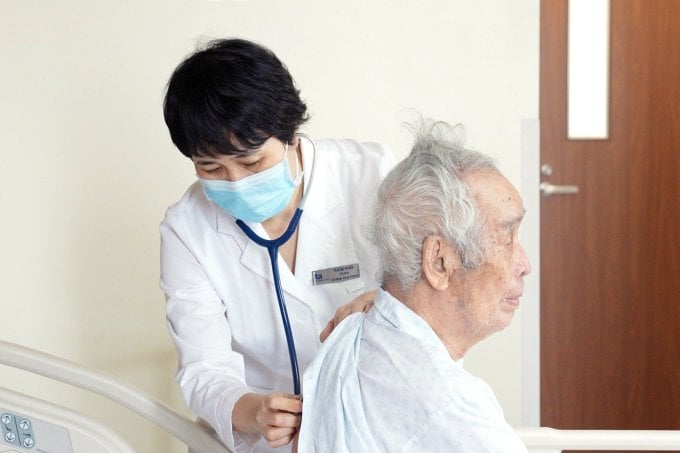
Dr. Mai Thi Hien examines a patient during treatment at Tam Anh General Hospital. Photo: BVCC
Mr. Cuc said that he had previously taken blood pressure medication and prostate medication without a doctor's prescription or examination. According to Dr. Hien, taking medication without a prescription and an enlarged prostate are the causes of urinary tract obstruction leading to acute renal failure. An enlarged prostate causes urinary tract obstruction, causing urine to stagnate in the bladder, increasing pressure in the renal tubules, causing hormonal changes leading to decreased blood flow through the kidneys, damage to renal tubular cells, and impaired absorption of water and salt, resulting in acute renal failure.
After recovering and urinating again, the patient may continue to be in danger due to dehydration in the cells, electrolyte disturbances due to salt loss, potassium loss. Therefore, the patient continues to receive intravenous fluids, closely monitor blood pressure, weight as well as kidney function tests and blood electrolytes. After 3 days of active treatment, the patient's kidney function is completely restored. The patient can eat well, sleep well, and blood pressure is stable.
After being discharged from the hospital, Mr. Cuc continued to take medication to treat his illness, uric acid-reducing and blood pressure-reducing drugs, and avoided taking drugs not prescribed by a doctor. At the same time, he needed to have regular health check-ups to promptly detect dangerous signs for effective treatment.
According to Dr. Hien, prostate enlargement is a common disease in older men. Worldwide, about 60% of men over the age of 60 have benign prostatic hyperplasia, leading to urinary disorders that affect the quality of life. In the elderly, prostate enlargement can lead to dangerous complications such as acute renal failure, which can be life-threatening. Therefore, the elderly should have regular check-ups, detect the disease and treat it promptly to avoid serious complications and live long and healthy lives.
Emerald
Source link


![[Photo] General Secretary To Lam receives Japanese Ambassador to Vietnam Ito Naoki](https://vstatic.vietnam.vn/vietnam/resource/IMAGE/2025/4/3/3a5d233bc09d4928ac9bfed97674be98)
![[Photo] A brief moment of rest for the rescue force of the Vietnam People's Army](https://vstatic.vietnam.vn/vietnam/resource/IMAGE/2025/4/3/a2c91fa05dc04293a4b64cfd27ed4dbe)
![[Photo] Prime Minister Pham Minh Chinh chairs the first meeting of the Steering Committee on Regional and International Financial Centers](https://vstatic.vietnam.vn/vietnam/resource/IMAGE/2025/4/3/47dc687989d4479d95a1dce4466edd32)

![[Photo] Ho Chi Minh City speeds up sidewalk repair work before April 30 holiday](https://vstatic.vietnam.vn/vietnam/resource/IMAGE/2025/4/3/17f78833a36f4ba5a9bae215703da710)
![[Photo] Prime Minister Pham Minh Chinh chairs meeting after US announces reciprocal tariffs](https://vstatic.vietnam.vn/vietnam/resource/IMAGE/2025/4/3/ee90a2786c0a45d7868de039cef4a712)
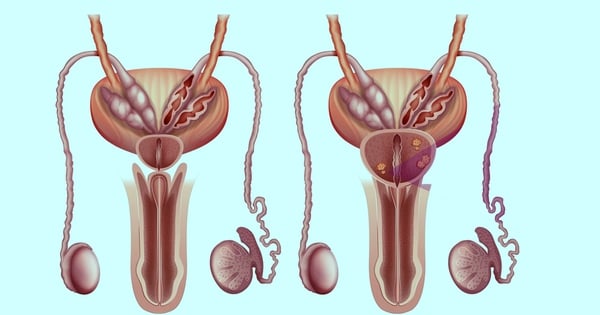





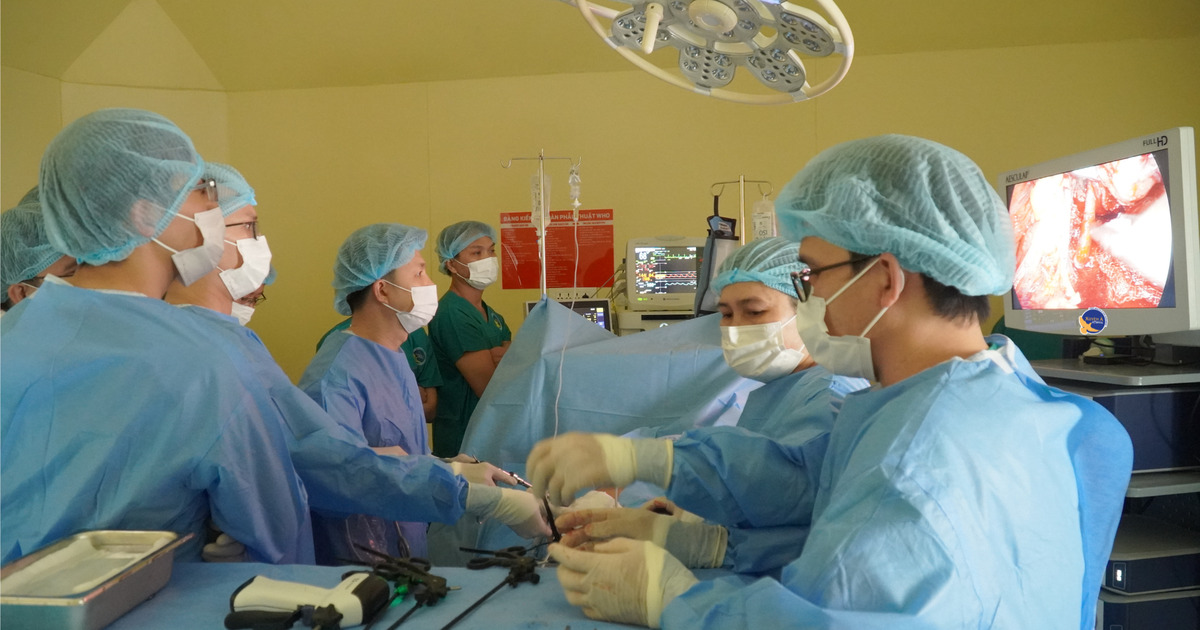


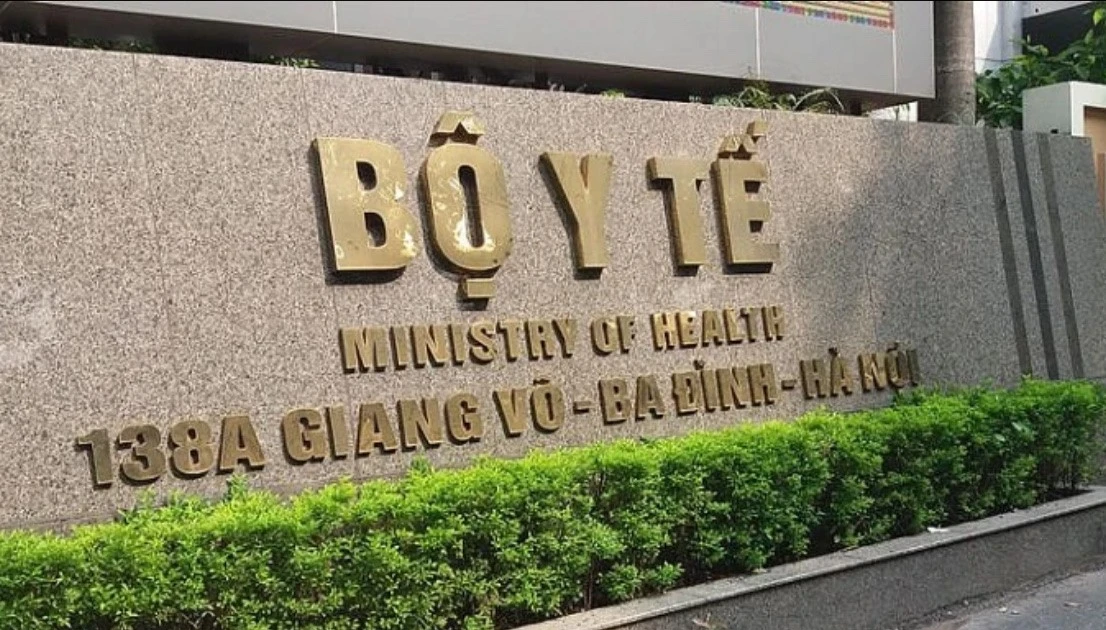



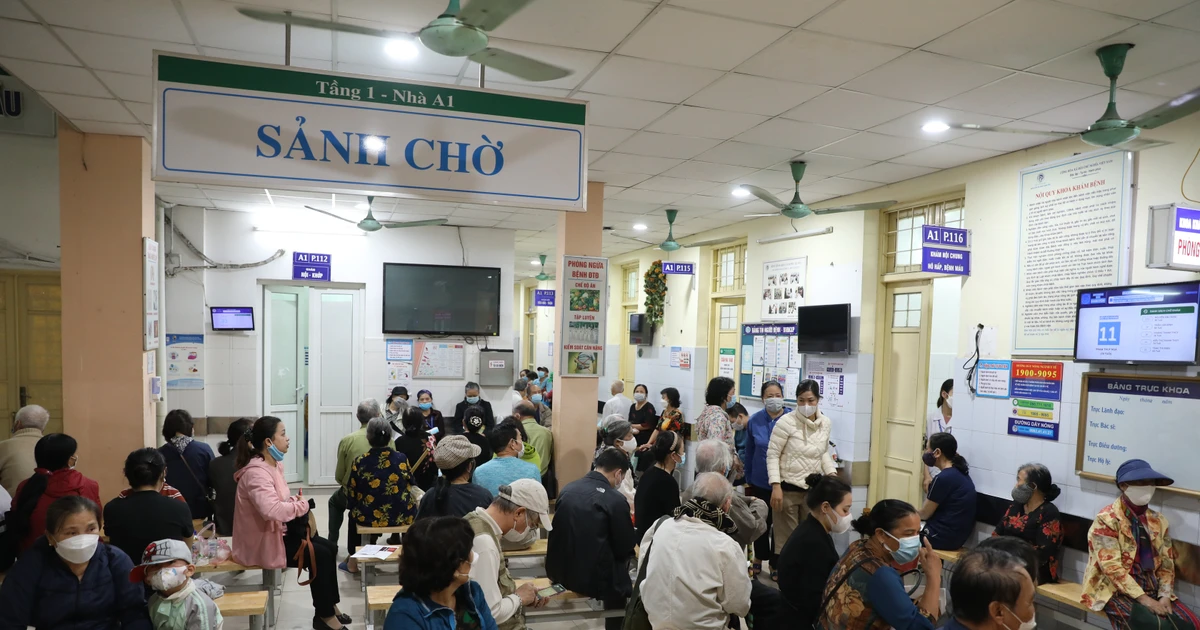









































































Comment (0)